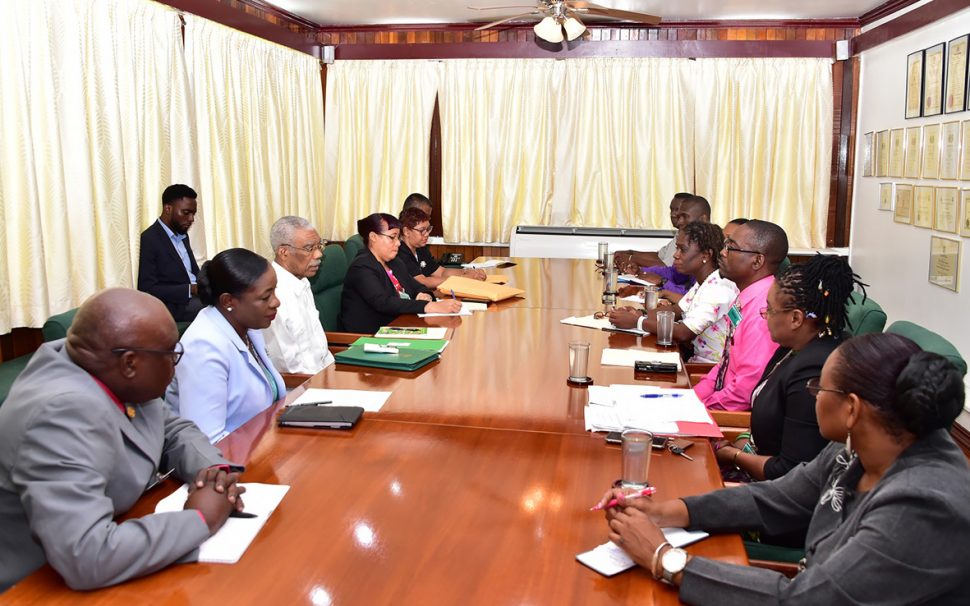How well- intentioned people change when they wield Power
I generally start my examination of social and political phenomena with a bias towards the socio-political environment and realities which produce the outcomes. In other words, I focus less on individuals as individuals and more on them as products of their environment. So, for example, I tend to pay more attention to the Burnham and Jagdeo regimes, rather than the two men as individuals. It is not that I deny individual agency, but I think the actions of individuals on the political stage is more informed by the demands and logic of that stage than by some isolated pre-meditated intent of those individuals.
Burnham and Jagan stand out in our political history as giants. But I contend that they could not have been what they turned out to be had they emerged at a different time. Rodney’s unique intervention was the result of the unique fusion of time and place and, of course, his personal capacity to articulate and embody the demands of that time and place. Similarly, Kwayana’s singularity on Guyana’s political stage reflected the unique time and place. Political immorality creates space for political morality and Kwayana, like Rodney, had the capacity to turn that opening into an effective tendency in the political culture.
I say the above to zero in on a central question—why do individuals, when entrusted with power, act in ways that are diametrically opposed to their hitherto core beliefs? I have watched with horror, in three short years, the collective behaviour of the government as far as governance is concerned. I try hard to make sense of some of the decisions and, in the end, I have given up. I know some of the individuals who make up the Cabinet, the only decision-making body in the coalition, and I often wonder whether the decisions reflect the political values of the individuals involved.
Let’s take the government’s attitude to the teachers’ wage issue, for example. I know the Junior Minister of Labour very well; I consider him both a colleague and friend. I can say with much certainty that his actions and utterances in relation to the teachers’ issue are inconsistent with his political outlook. Further, if anyone had said to me that President Granger would be the head of a government that would subject the nation’s teachers to the kind of bullying and insensitivity that have been meted out to them, I would have chased them out of town. I have known Dr. Rupert Roopnarine as a close colleague and brother for 41 years. Had anyone told me that he would sit in a Cabinet that presides over the current treatment of teachers and not publicly register his disapproval and disassociate himself from that scenario, I would not have listened to them.
So, what has changed? The answer is simple—they now wield power. They have adjusted to the logic of power in an ethnically divided post plantation society. The entire political government has become prisoners of what Guyana has become. They have all adjusted to the kind of political orthodoxy that has been our undoing these past six decades. It’s as if we can’t help ourselves. What kind of legacy are we leaving for those who are coming after us?
It boggles the mind that a group of people who turned their faces against the excesses of the Jagdeo regime have now become the purveyors of Jagdeoism. In many ways this government is worst than the Burnham and Jagdeo regimes—not because they have done worse, but because they know better and brazenly refuse to do better. I don’t care how many buses you give to school children; it doesn’t change much if you then turn around and refuse to pay teachers a reasonable living wage and then trick them after they called off their strike in good faith. Education is a holistic process—you can’t have the kids at heart and then beat up on their teachers. There is something ugly about that scene.
The obscenity of celebrating the fact that some teachers did not join the strike is too much to take from a government that promised to stop the drift of commandist government. The readiness to deploy scab labour to break the strike is so anti-labour at its worst. The deliberate misinterpretation of the rules governing the role of the Labour Ministry in the arbitration process is nothing short of political gangsterism. In all of this, the president is silent and inactive.
The attitude of this government has convinced me that the West Indian elites have a problem with the management of power. So, even when government does some good things, they get submerged in the mess called bad governance. That was the problem of the Burnham and Jagdeo governments. And this government has learned nothing from those experiences. Perhaps they don’t care to learn. As the kids would say, it is what it is. Even oil and gas wealth would not correct that defect.
More of Dr. Hinds ‘writings and commentaries can be found on his YouTube Channel Hinds’ Sight: Dr. David Hinds’ Guyana-Caribbean Politics and on his website www.guyanacaribbeanpolitics.news. Send comments to dhinds6106@aol.com



